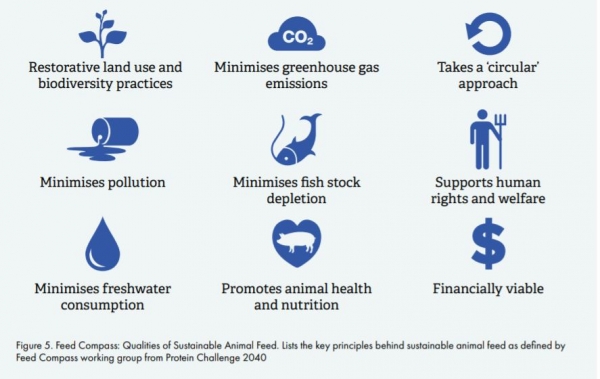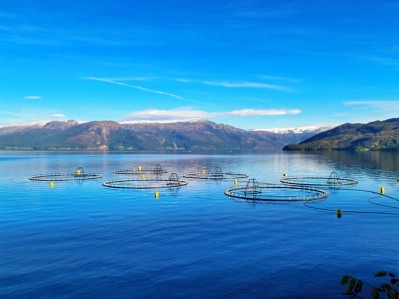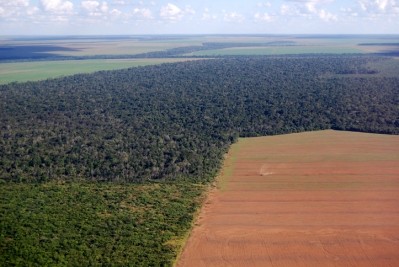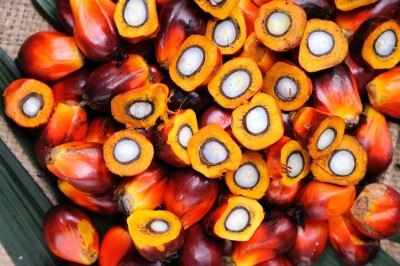Precompetitive, systemic action needed to accelerate sustainable feed, says UK group

That publication outlines how the production and consumption of protein is in need of rapid transformation, and it analyses the public commitments of 132 of the world’s largest and most influential food businesses, from meat and dairy producers to high-street retailers, foodservice providers, as well as feed manufacturers, to such change.
Amidst concurrent growth in meat sales, the report found there is not enough being down to overhaul animal feed production within the meat, dairy and fish sectors. It calls on businesses to accelerate action by delivering a five-point plan aimed at transforming the global food system.
We talked to Lesley Mitchell, associate director for sustainable nutrition, Forum for the Future, about some of the findings.
“We are seeing signs of change. The report that we have just put out looks at the shift that companies are making across different sectors. We are seeing attention to feed [in relation] to climate, for example, and where there are major crisis risks – with some 46% of the companies we surveyed making commitments towards zero deforestation and certified and local soy within their feed systems.
"But in terms of looking at novel feedstocks, for instance, the numbers were much lower - 13% across the board.
"More importantly, an understanding of the wider picture of sustainability and feed is still really in its infancy. The idea of looking beyond hot button issues like soy deforestation and fishmeal, and looking instead at a more joined-up approach to sustainability, one that considers the big issues coming at us at great speed, such as biodiversity loss, and assessing the range of innovations available, which ones might be suitable for different production systems, is still new.”
Systemic approach
A systemic approach is required, stressed Mitchell.
A lot more investment is needed from companies to understand their role in shaping a more sustainable protein system, and in working more closely with their supply chains on action, she said.
It can be challenging for broiler farmers, for example, who operate on such low margins, to try and make production more sustainable through feed, she acknowledged.
“That is why there is a need for systemic action [by actors in a range of sectors], identifying animal feed sustainability as a priority, and looking at what innovations can be scaled to allow farmers incorporate those in their regimes.”
One of the big barriers to change spotted by Feed Compass, a multi-stakeholder collaboration facilitated by Forum for the Future, is the fact that industry cannot draw comparisons between feeds, both in terms of sustainability and nutritional profiles, said Mitchell. “Industry does not know what risk it is taking, particularly when it comes to incorporating novel feeds.”
Another barrier is low public awareness of feed and sustainability challenges, she said.
UK retailers like Tesco, Waitrose and M&S, though, are stepping up; they are starting to see feed as an issue, she said.
But cost and scaling remain a hurdle.
“We are seeing lots of potential innovation, in insect protein, in algal oils, particularly in salmon feed, but it is about the sector getting behind those. There is a need for an enabling environment, whether it is around policy or investor support, to allow the transformation to happen.
“What gives me hope, though, is that we are seeing bodies like the World Economic Forum showing interest in market incentives for such transformation, while the World Business Council for Sustainable Development has a huge focus on animal protein.
“And what we are trying to do with our own initiative, Protein Challenge 2040, of which Feed Compass is a part, is to build up, next year, a much stronger footprint in Asia.”
Mitchell recognizes that efforts are being made by international feed players on the sustainability front, but she argues that what is really needed is a shift in values, in thinking, and in business models.
A move is on, feed industry players are paying attention, she said. “But the question is the scale, the speed and the integrated nature of the responses.”
Feed sustainability case studies
Senior strategist with the Forum for the Future, Samuel Smith, who runs its Feed Compass initiative, echoed those comments.
“We do witness a lot of good activity happening, but much of it is small, incremental shifts. In our collaboration [work], we’re interested in exploring the strategies that support greater acceleration on feed sustainability. Key challenges are identifying activities that help overcome the debate around 'who pays for it' in the supply chain and how responsibility can be shared.”
A critical mindset shift might come from ending the era of ‘least cost formulation’ in feed, he said.
“It often feels there is a lack of shared goals on feed sustainability that respond to the significant and disruptive challenges our food system faces. A lack of shared goals limits the ambition, financing and pace of the collective action that’s needed,” added Smith.
Three case studies were carried out recently under the Feed Compass project, across different animal protein sectors.
Smith, though, was unable to disclose much detail about these, as this juncture, as the team is still drawing out the insights and lessons learnt.
“Feed Compass pilots are intended to showcase examples of companies working to improve sustainability of animal feed. We use the nine Feed Compass principles to evaluate the sustainability of innovations, identifying gaps and opportunities for the future.
“We are currently evaluating three feed innovations, including a salmon feed case study with Scottish Sea Farms, Tulip’s work to improve the feed sustainability of pork, and a ruminant case study with Waitrose. For each one, we’ve identified opportunities for these companies to take further action, by engaging with their supply chain,” he said.
US-based workshop
He also hosted a workshop at the Sustainable Agriculture Summit in Indianapolis, US, last week, entitled 'Roadmaps towards sustainable animal feed'.
“We had about 50 participants from across the value chain. The audience had the chance to discuss the activities needed to accelerate feed sustainability and the goals of a more sustainable feed system.
“We provided some context to why action on feed sustainability is not happening fast enough, particularly in the face of global challenges such as climate breakdown and biodiversity loss.
“We also provided a sense of the big areas of action needed to increase feed sustainability, that has come out of our convening of workshops and discussions with companies across the animal feed space over the last two years."
These include a greater focus on feed efficiency, through improving livestock management practices and more precise feed formulations. "This is where a lot of industry action is already focused".
Further action is required to Improve the sustainability of existing feeds, supporting producers to grow feedstocks using more regenerative agricultural practices where, along with increased traceability and transparency across the supply chain. "There is some early stage innovation here.
Scale-up of novel feed ingredients is also needed including insects, algae, fermentation-derived feeds and other feeds, providing they have a better sustainability profile, said Smith.
Also further activity on animal welfare is required, along with greater use of food by-products and crop co-products.
“We need action on all fronts, not just one or two. We believe there are some common goals that are applicable globally, while acknowledging that opportunities and solutions do vary significantly by livestock system and region,” added Smith.
What is a truly sustainable food system then?
If the livestock and feed industries can get their houses in order, animal protein will get the recognition it deserves as high quality, nutritious food, argued Mitchell.
“If meat production systems can be made genuinely sustainable, it will be much easier to make the case for the value of those production models.
“We need to understand the role of feed, and the contribution that feed can make, but in a wider discussion on how much is produced and consumed and where and how [feedstuffs are grown].
“What has surprised me is that while there has been a lot of focus on red meat production and the associated GHG emissions, there has not been the same attention given over to monogastric production, its heavy reliance on grains and soy, and the consequences of that, and whether pig and poultry systems are actually sustainable.
"It is difficult to compare a ruminant grazing on pasture, on land that could not otherwise be used, producing high quality protein but with a significant GHG emissions impact, with broilers where there is massive input of grain and soy. And I wonder, as the world gets more sophisticated about where its food comes from, whether that will rebalance."
Despite growing economies and growing populations, Mitchell is actually quite optimistic about the possibility of a shift towards more sustainable practice:
"But it does lay in the hands of those who are creating that system, and also the food companies that are making the requests and requirements to their producers. One of the key elements we have been focusing on is the need for those market commitments and demonstrable pull-through, and we still see so very few.”













